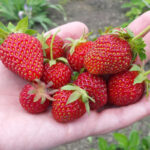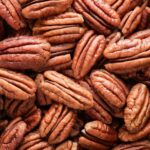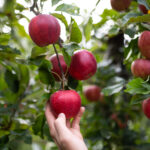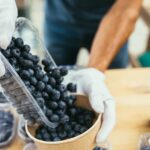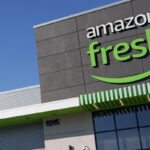Dominican Republic racing to grow in the global mango export scene

The Dominican Republic has seen an unprecedented increase in mango exports.
Last year, the country reported 32 million kilograms of mango exports. This year, according to estimates by Dominican Mango Cluster PROMANGO, fruit growers can expect an increase in exports of up to 30%, reaching 3 million boxes of 4 kilograms.
Fruit growers focus on marketing local mango varieties in the United States after seeing increased exports to the country. The US has become one of the main trading partners for the Dominican fruit industry.
FreshFruitPortal spoke to the Dominican Republic's Mango Cluster PROMANGO president, Rafael Leger, one of the main people working behind the scenes to see an international increase in Dominican mango consumption.
The cluster is an entity that originated to develop a reputation internationally for the Dominican mango. Its members have been working for 20 years developing strategies to market the country's tropical fruit.
"We began as a country that didn't have a high number of agricultural exports because we were behind on technology, infrastructure, technicians, and many things that were required for fruit growth," he explained.
"But, throughout the years, thanks to international and agribusiness help, we've been developing new technologies that have led to a steady increase in exports."
The plan was always to create a strategy to develop the mango industry and reach international markets. The original plan was an increase in European exports, but thanks to the new mingolo variety, Dominicans have been able to fill an unexpected gap in the American market.
The mingolo variety has gone from being almost unknown to one of the most demanded varieties in the past 4-5 years, Leger explained. The yellow-hued mango is highly sweet and described as a dessert mango.
Mingolo accounted for 32% of Dominican mango exports to Europe and 95% of Dominican mango exports to the United States in 2023. Currently, keitt is the main US export variety, followed by mingolo, and other varieties such as banilejo and crema de oro.
"Ten to 12 years ago, the mingolo variety was detected in the country and today mingolo is in such high demand that the country has invested in six hydro technic plants and technology, which the variety requires to grow," Leger explained.
The plants are in Moca, Navarrete, and four of them are in Peravia, Bani, the region known for its high number of hectares dedicated to mango plantations and the home to the banilejo mango variety, one of the most popular varieties amongst Dominicans.
Leger said they're currently focusing on increasing their exports of the banilejo variety that, although popular locally, has been difficult to market internationally due to its size.
"The only problem we're having with the banilejo is that is a little bit small. The mingolo is a little bit bigger but it has characteristics that are very similar to Asian mangoes and can also compete with the madame francine and ataulfo varieties," Leger explained.
"But, we're working with the banilejo variety because it's a wild variety, it's not genetically selected like the like mango. The banilejo variety is native to the country and is seeing an increase, although slowly, in the past year it saw around a 10-12% export increase."
Leger said that the organization is currently preparing for Expo Mango 2024, the mango festival that will take place in Baní, Peravia. The yearly event is a celebration for locals and industry experts from both the Dominican Republic and other countries to enjoy and explore local varieties, taste the fruit, and learn about Dominican agriculture.
Filled with both informational events and celebrations, the event mixes business and pleasure to attract anyone interested in the mango industry.
"We have folkloric events that showcase Dominican culture, dozens of mango varieties, new technologies; it's a party for the mango," Leger said.
The event lasts around five days and starts May 29, 2024.
This is all part of a big effort to continue promoting the mango industry internationally. When asked about the association's objective for the mango industry, Leger said it is to continue making a name for local mango varieties.
"We've been able to slowly forge a path with our local varieties and show the world that the Dominican Republic has quality mangoes," he explained.
















